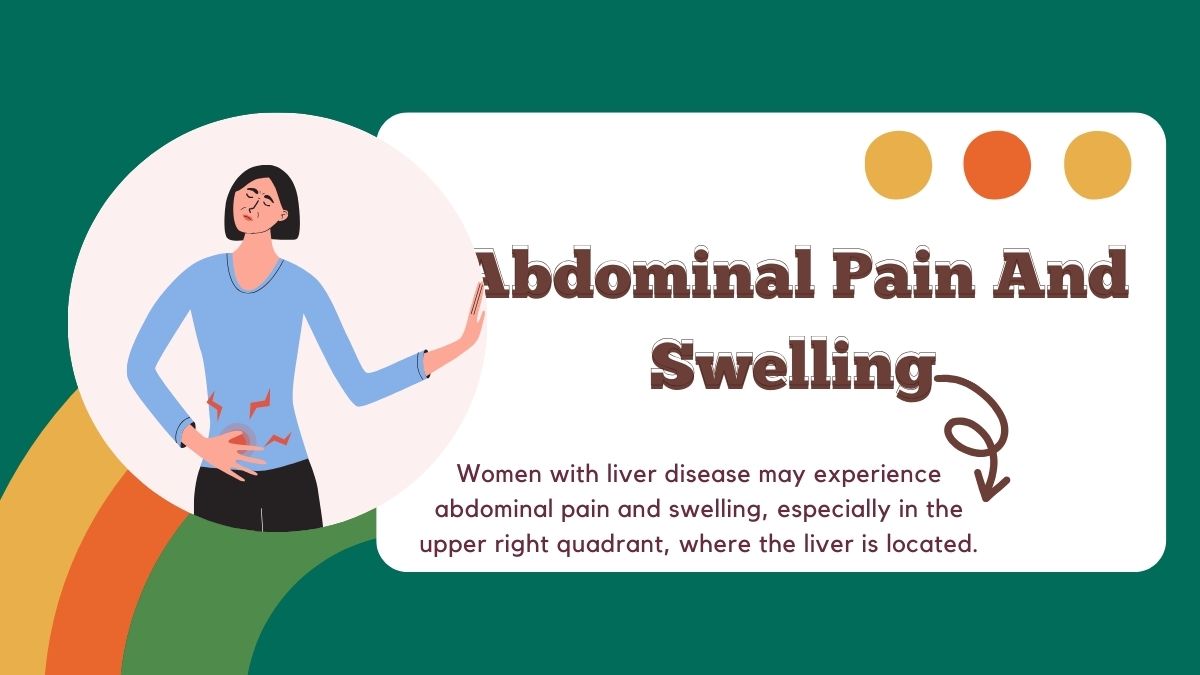- By Priyanka Munshi
- Sat, 20 Apr 2024 10:07 AM (IST)
- Source:JND
Women with liver illnesses can develop a variety of liver-related disorders, some of which differ from those affecting men. Due to reasons including hormonal swings, pregnancy, and variations in alcohol metabolism, women are more susceptible to certain liver illnesses. Common liver illnesses in women include liver cancer, autoimmune hepatitis, fatty liver disease, and hepatitis B and C.
Additionally, hormonal changes during menopause or pregnancy may affect liver function and increase the risk of specific liver diseases. Moreover, compared to men, women may not experience some liver disease symptoms such as nausea, jaundice, and stomach pain.

Hormonal changes during menopause or pregnancy can also increase the risk of specific liver diseases.(Image Credit:Canva)
In a conversation with Jagran English, Dr. Apurva Pande, a consultant in the Department of Gastroenterology and Hepatology at Fortis Hospital in Greater Noida, discussed symptoms of liver disease in women that should not be ignored.
Also Read: 5 Yogurt Face Masks To Use Every Week For Glowy Skin In Summers
Liver disease affects people of all age groups, irrespective of gender. Factors like genetics, lifestyle choices, viral infections, autoimmune disorders, and exposure to toxins can all contribute to liver disease development, regardless of gender.
Dr. Apurva highlighted common liver diseases in women, including viral hepatitis (especially hepatitis B and C), nonalcoholic fatty liver disease (NAFLD), alcoholic liver disease, liver cirrhosis, and liver cancer (hepatocellular carcinoma). Early detection through screening programs and lifestyle interventions is crucial for managing and preventing these liver diseases in women.
5 Symptoms Of Liver Disease In Women:
Fatigue And Weakness: Persistent fatigue and weakness, which may not improve with rest, are common symptoms of liver disease in women. The liver's role in energy metabolism means compromised liver function can lead to constant tiredness.
Jaundice: Yellowish discoloration of the skin, mucus membranes, and eyeballs can occur when the liver cannot effectively process bilirubin. In women, jaundice may be accompanied by itching, dark urine, and pale stools.
Abdominal Pain And Swelling: Women with liver disease may experience abdominal pain and swelling, especially in the upper right quadrant, where the liver is located. This pain can range from mild discomfort to severe cramping and may be accompanied by bloating or fullness. As liver disease progresses, fluid accumulation in the abdomen, known as ascites, may occur.
Nausea And Vomiting: Persistent nausea and vomiting can indicate liver disease in women. The liver's role in digestion means compromised function can lead to digestive disturbances, with women experiencing nausea, particularly after meals, and unexplained vomiting.
-1713514173491.jpg)
Do you know that women may not experience certain symptoms compared to men?(Image Credit:Canva)
Changes In The Menstrual Cycle: Liver disease can affect hormone metabolism in women, leading to irregular periods, heavy bleeding, or cessation of menstruation. Hormonal imbalances can also contribute to symptoms like mood swings, hot flashes, and decreased libido.
Ignoring these symptoms can lead to serious complications, like liver failure and cirrhosis. It's essential for women experiencing any of these symptoms to seek prompt medical attention. Healthcare providers can conduct evaluations and tests to diagnose liver disease and develop treatment plans.
Dr. Apurva emphasized the importance of adopting measures to enhance liver function, such as maintaining a healthy weight, limiting alcohol intake, avoiding pollutants, and following a balanced diet rich in fruits, vegetables, and whole grains. Early detection and action are crucial in controlling liver disease and preventing further consequences.

